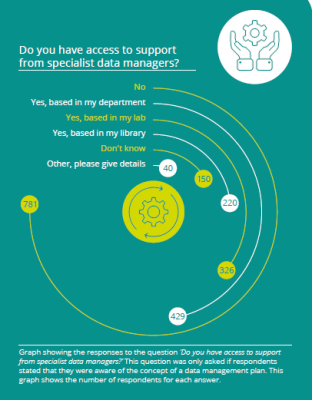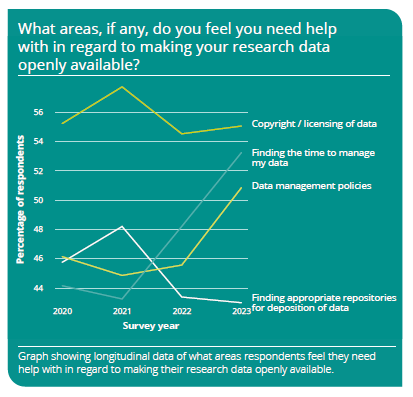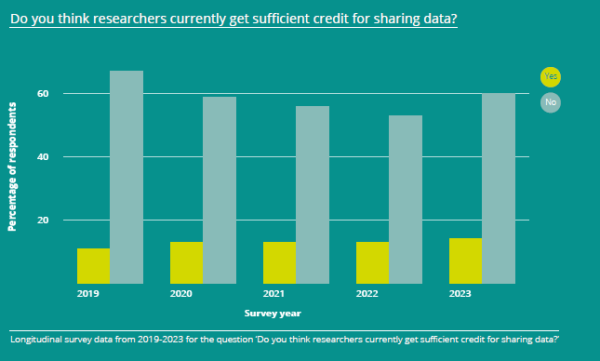Over the past eight years, open data and open research have undergone a rapid transition – from being academic concepts and the domain of the few, to becoming more widely accepted and, in some countries, mandatory for researchers and institutions.
This week marks the publication of The State of Open Data 2023: an annual collaborative effort between Figshare, Digital Science and Springer Nature designed to track this transition and provide an ongoing benchmark for change.
The State of Open Data report explores researchers’ perspectives and experiences of open data; including motivations for sharing data, obstacles faced in making data accessible, and the perceived reliability of openly shared data.
With a record 6,091 responses this year, the report is essential reading for institutional administrators, librarians and research data professionals. It is, of course, openly available, and can be downloaded in full here.
Here are the key takeaways:
Almost three-quarters of respondents had never received support making their data openly available.
 Almost three quarters of respondents had never received support with planning, managing or sharing research data.
Almost three quarters of respondents had never received support with planning, managing or sharing research data.
Of those surveyed, only 23% indicated having received assistance in managing or making their data openly available.
Interestingly, when support was available, it predominantly came from informal sources like colleagues and supervisors, despite 50% of respondents being aware of data management plans and having access to data managers or curators at their institutions.
These findings suggest that, despite the growing demands for data management, researchers perceive a lack of effective support. Notably, those who had recently published or submitted a manuscript were less likely to rate their support level as “good” or “excellent.”
Institutions should consider developing and enhancing what support they provide to researchers to help with managing or sharing data, or (if support already exists) think further about how to ensure this is effectively communicated to researchers.
Reducing the burden on researchers
Finding the time to manage data is an ongoing challenge for researchers, and this is once again borne out in the results of the survey. “Needing help with data management policies” has also sky-rocketed as a cited challenge during past years, reflecting the growing complexity of funder mandates and open access policies across the globe. Researchers publishing in the last year are significantly more likely to share data due to a funder requirement than those publishing earlier, making this a critical area from an institutional support perspective.
Institutions and funders should aim to establish clear policies that recognize and reward researchers for sharing data openly, provide support and guidance on these policies, and integrate contributions into career progression evaluations.

Credit is an ongoing issue
For eight years running, The State of Open Data survey has revealed a recurring concern among researchers: the perception that they don’t receive sufficient recognition for openly sharing their data. The 2023 survey responses continue this trend, highlighting an ongoing issue within the research community that needs to be addressed in the future. Notably, there is currently no standardised quantification for credit related to dataset citation counts. As of now, the primary motivator for respondents to share data continues to be the citation of their research papers, standing at 65%.
One size does not fit all
The survey revealed significant diversity in responses among participants from various geographic locations and disciplines. A purely global and cross-disciplinary approach to research data management and its promotion is clearly not sufficient or sustainable.
A targeted understanding of research context is crucial, and support should be tailored at a national, institutional, departmental and disciplinary level in order to truly engage. Academic institutions should consider conducting internal surveys and workshops to understand the unique needs of different departments and disciplines.
Challenging stereotypes
The 2023 survey results challenge the notion that career stage significantly influences open data awareness or support levels among researchers. Contrary to stereotypes, the findings suggest that later career academics are not inherently opposed to progress, while also challenging the idea that early career researchers are the sole drivers of change in open data practices. The results indicate that researchers at all career stages encounter similar challenges, pursue similar rewards, and demonstrate a similar level of openness to embracing open data.
